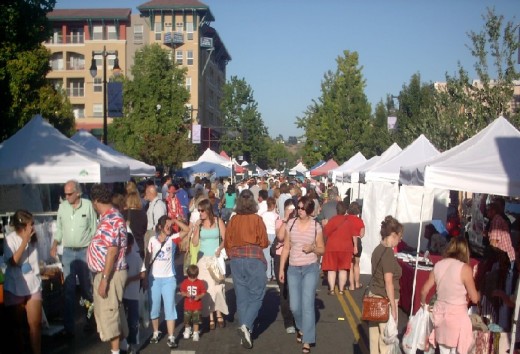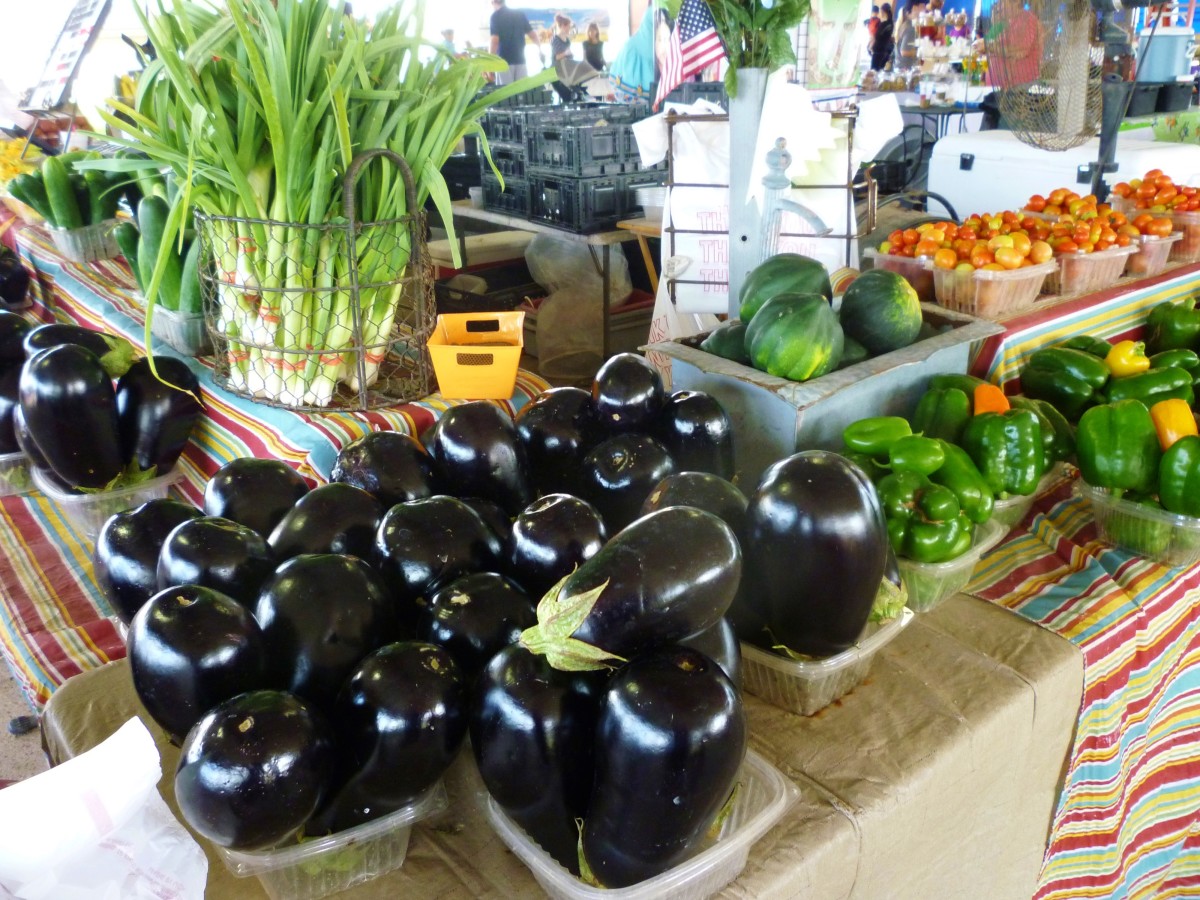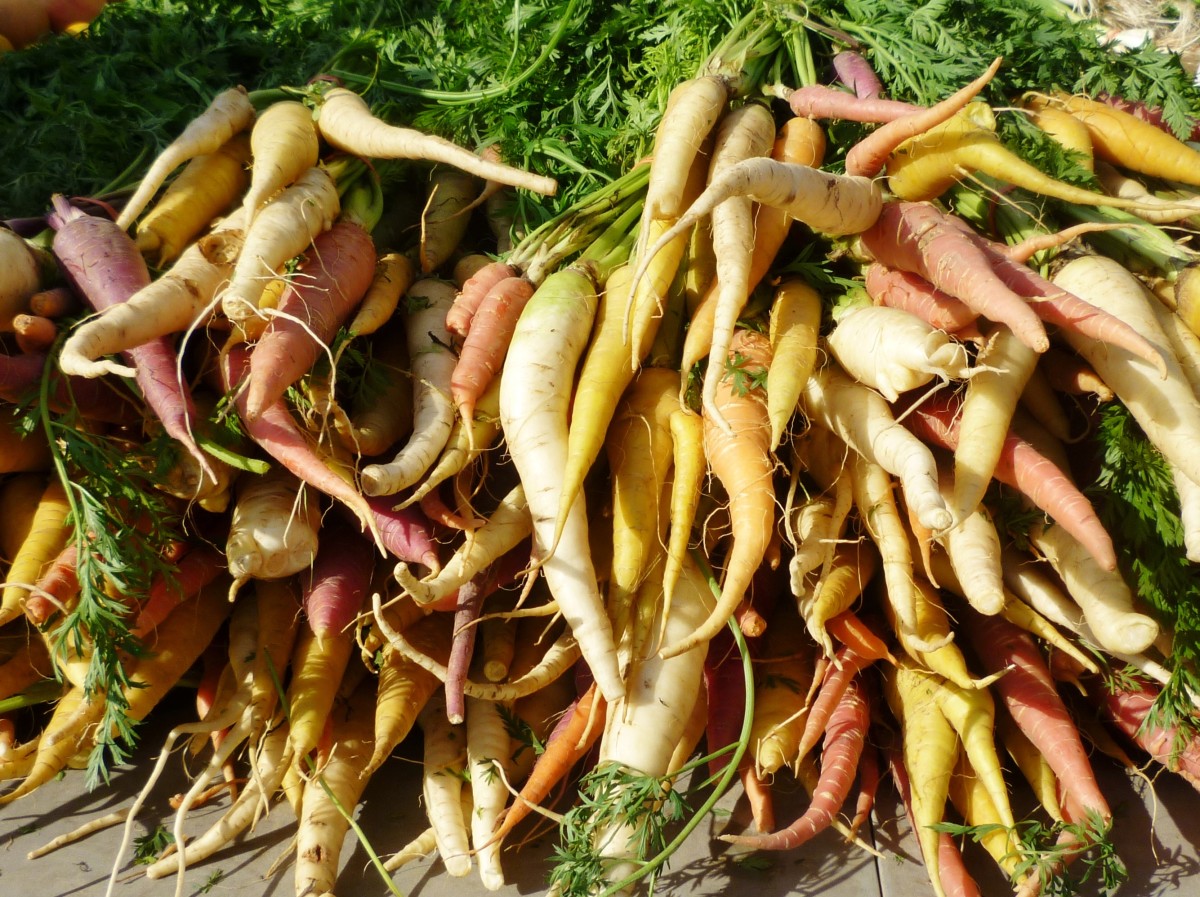10 Tips for Being Greener at the Farmer's Market

Getting your food from the local farmer’s market is a great way to be eco-friendly. Doing this allow you to get your food from the local area where you live which means that waste is reduced in terms of the transportation and preservation of the food. It means that you’re supporting local businesses that almost always use green practices in their own work. It’s great for a number of reasons and being green is one of them. However, you can always do more to be green. When you’re getting your food from the farmer’s market, you can follow some additional habits so that you are even greener than the other people who shop there.
Ten top tips for being greener when using the local farmer’s market to get groceries are:
1. Walk or bicycle to the farmer’s market. Many people drive to the farmer’s market because they’re going to be hauling groceries back home with them. However, this is bad for the environment. Get a little shopping cart or a big basket for your bicycle and start getting to and from the farmer’s market in a more eco-friendly manner.
2. Always bring your own eco-friendly bags. When you go to the farmer’s market, you put all of your food in bags to take home with you. Many people bring plastic bags from their other grocery stores. Although it’s great to re-use those bags if you have them, it’s a lot better if you stop getting and using those bags altogether. Invest a little bit of money into eco-friendly, re-usable canvas tote bags. You should also get smaller eco-friendly bags for the produce that you want to bunch together (such as your carrots or peas).
3. Also bring your own eco-friendly containers. There are some items that you’ll get from the farmer’s market that are better off if they’re put in containers than if they’re put into bags. Strawberries and other easily bruised fruit are a great example. Bring your own reusable eco-friendly containers from home for these items. Use them again and again when shopping at the farmer’s market.
4. Bring your own reusable dishes if you’re going to eat at the farmer’s market. Many people not only get groceries from the farmer’s market but also purchase a meal to eat there from one of the food vendors. Instead of using their paper plates and throw-away cutlery, you should bring your own and ask them to serve you on your plates to reduce waste.
5. Look for the booths that are offering the most eco-friendly options. There are some farms that are greener than others and you can do your part by doing your shopping with the greenest of them while you’re at the farmer’s market. Look or ask for information about the business’s green practices including using minimal packaging, eco-friendly farming practices and raising animals in an eco-friendly manner. If you have a choice between two farms for a product at the market then choose the one that seems to be the most green.
6. Buy only what you’re going to eat so that you don’t waste food. It’s easy to get tempted into buying a lot of stuff at the farmer’s market when you are there because there is so much great food in front of you. However, these foods are preserved so they don’t last that long. If you’re wasting food then you’re not being kind to the earth so buy only what you can eat.
7. Use everything that you buy. This is slightly different from the last point because here we’re talking about using all of the parts of the food product that can be used. Many people purchase a food product and throw a lot of it away. For example, they’ll buy turnips and use most of it but throw away the turnip greens. Those greens can be used in other recipes that week. Try to make smart choices about how to use the entire product that you purchase from the farmer’s market.
8. Compost. If you do find that you have food leftover from the farmer’s market, make sure that you’re being responsible with it by composting it instead of throwing it away. This reduces landfill waste and improves the earth for everyone.
9. Buy more than just your groceries at the farmer’s market. There are a lot of great vendors at the farmer’s market who offer items for sale including clothing, soaps and candles. These are typically green businesses who are making products that are earth-friendly. Support these businesses while you’re there instead of buying those items from a less eco-friendly store in the area.
10. Spread the word to others about being green at the farmer’s market. It’s most important that you work on making these green practices a habit of your own life when using farmer’s markets. However, you shouldn’t stop there. You should also educate others about being green at the farmer’s market. You can use word-of-mouth to discuss these practices among your friends or you could even set up your own educational booth at the farmer’s markets.
Being green is something that we should all care about. Those people who shop at farmer’s markets tend to have a green mindset already. However, there is always a little bit something more that we can do to be greener in our practices and that includes being greener in our habits at the farmer’s market.
- 100 Mile Diet: Local Eating for Global Change » 13 Lucky Farmers’ Market Tips
When the average North American sits down to eat, each ingredient has typically traveled at least 1,500 miles from farm to plate. - Farmers Market Tips - How to Shop Farmers\' Markets - Guide to Shopping Farmers\' Markets
Ten tips to help you shop at farmers markets and make shopping farmers markets easy. - Save Money Getting Food Fresh From the Farm
Getting your food from the farmer's market is a great way to save money on groceries while being green.








